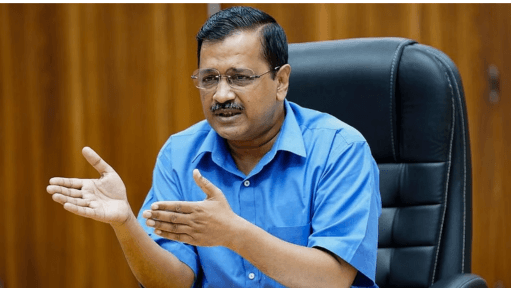
Can Arvind Kejriwal Govern from Behind Bars? Legal and Logistical Challenges Arise
State government will not be run from jail, says Delhi Lieutenant Governor VK Saxena
Delhi Chief Minister Arvind Kejriwal's recent arrest by the Enforcement Directorate (ED) has sparked a heated debate over his ability to continue governing from jail.
Aam Aadmi Party (AAP) national convener Kejriwal was arrested by the ED on March 21 in the Delhi excise policy-linked money laundering case and subsequently remanded in the agency's custody till March 28 by a Delhi court.
After Kejriwal's arrest, Delhi Cabinet minister Atishi said that he would continue as the chief minister and run the city government from prison if needed. Kejriwal's Punjab counterpart Bhagwant Mann also said that the party's supremo cannot be replaced.
Kejriwal had issued his first work order from ED's custody on Sunday instructing Water Minister Atishi to solve water and sewer-related problems in some areas of the city.
On Tuesday he gave instructions to Health Minister Saurabh Bharadwaj to ensure that medicines and tests are available to people at all government hospitals and Mohalla Clinics.
Amidst accusations from the ruling Bharatiya Janata Party (BJP) and assertions from legal and constitutional experts, questions loom regarding the practicality and legality of governing from jail.
Drama or Constitutional Crisis?
The BJP has vehemently criticised Kejriwal's attempts to issue directives to his ministers while under ED custody. Manjinder Singh Sirsa, the BJP national secretary, contended that a chief minister's capacity to lead effectively diminishes once in custody, labeling the situation as a political spectacle orchestrated by the Aam Aadmi Party (AAP).
Immunity vs. Accountability
Constitutionally, prime ministers and chief ministers are not immune to arrest, unlike the president and governors. Article 361 offers immunity only to the latter, emphasising the principle of equality before the law. However, mere arrest doesn't trigger disqualification; conviction is the determining factor.
Logistical Hurdles: Governance from Jail
Theoretically, a chief minister could continue to discharge duties from prison, but logistical challenges abound. Legal experts point to the precedent set by former Bihar chief minister Lalu Prasad Yadav, who appointed his wife as CM during his incarceration. However, conducting cabinet meetings or official reviews from a jail cell presents practical hurdles.
Technical Complexities: Delhi's Unique Governance Status
Delhi's unique status as a Union Territory adds layers of complexity. High-ranking officials suggest that constitutional boundaries outlined in Articles 239 AA and 239 AB could exacerbate challenges for Kejriwal's governance from jail. Central rule might become a possibility in case of perceived constitutional breakdown.
Jail Manual vs. Government Mandates
Citing jail manuals, BJP leaders argue that inmates have limited rights, complicating Kejriwal's ability to fulfill his duties. Practical obstacles include the flow of files, delegation of tasks and adherence to new guidelines, raising doubts about the feasibility of governing from behind bars.
As legal, logistical, and constitutional complexities mount, the feasibility of Arvind Kejriwal governing from jail remains uncertain. While AAP asserts his capability to continue, challenges both moral and technical underscore the delicate balance between governance and accountability in the Indian political landscape.
Meanwhile, Delhi Lieutenant Governor VK Saxena said the state government will not be run from jail. Replying to a query at the Times Now Summit, the Delhi LG said, "I can assure the people of Delhi that the govern
For any enquiries or information, contact ask@tlr.ae or call us on +971 52 644 3004. Follow The Law Reporters on WhatsApp Channels.